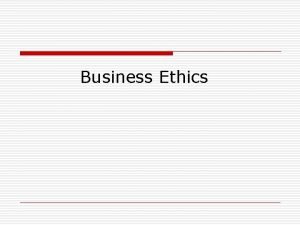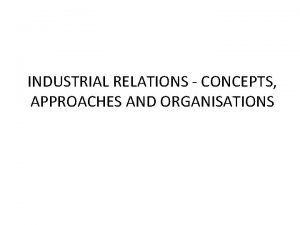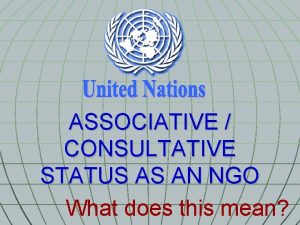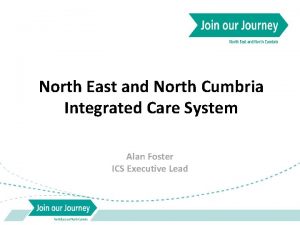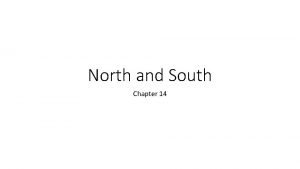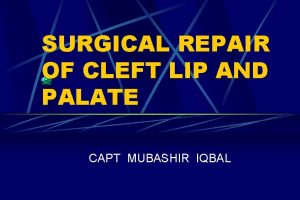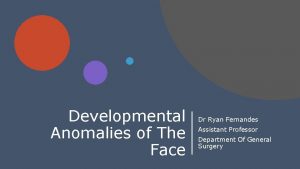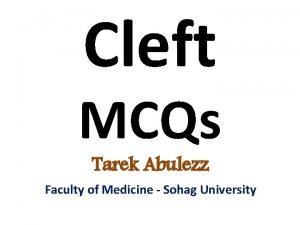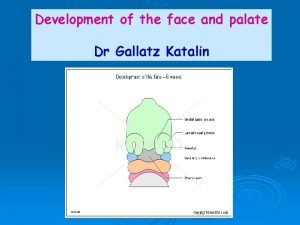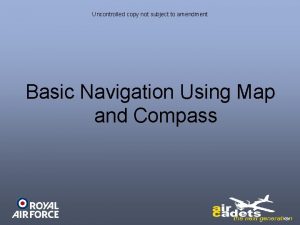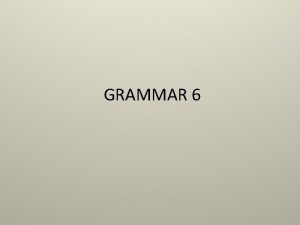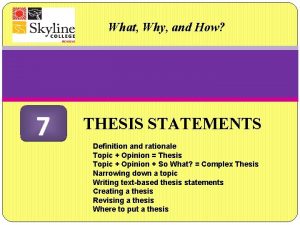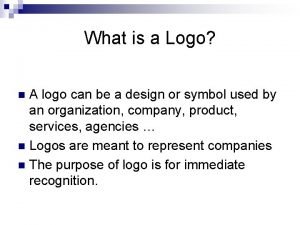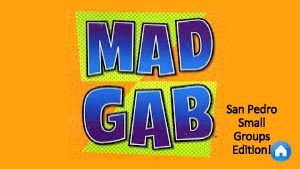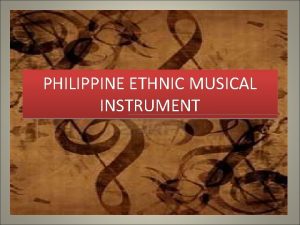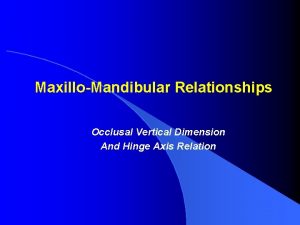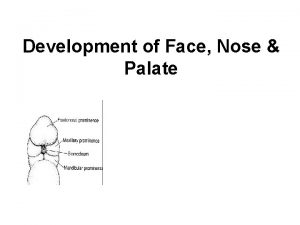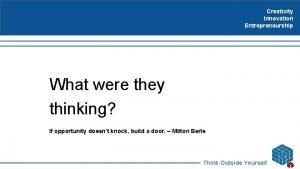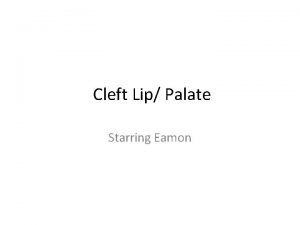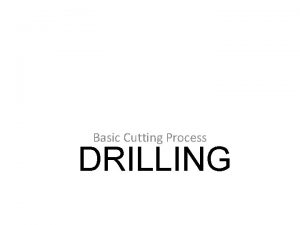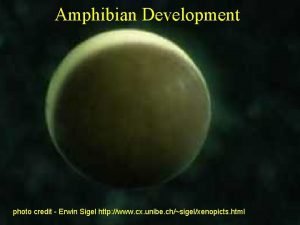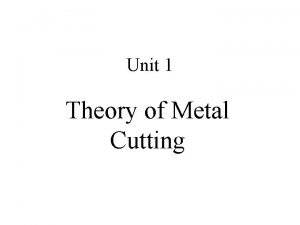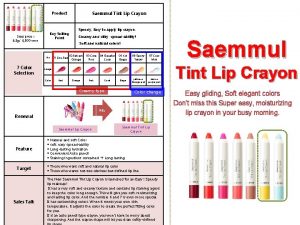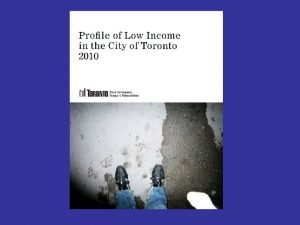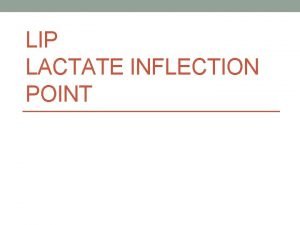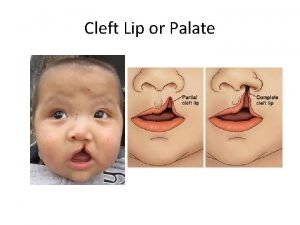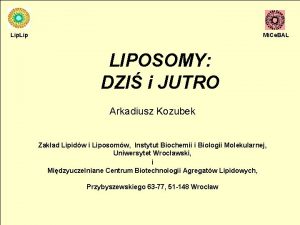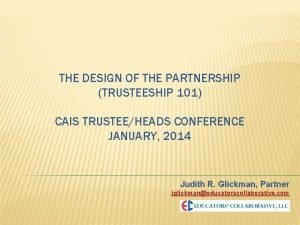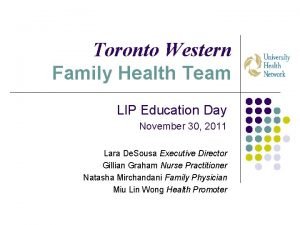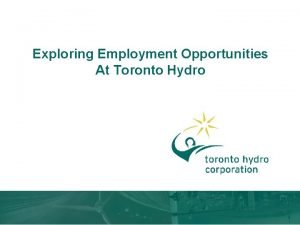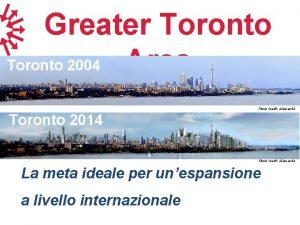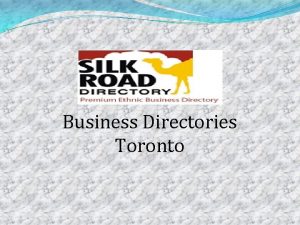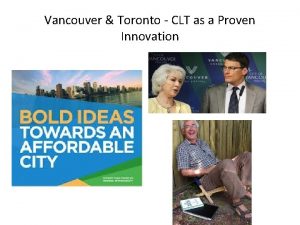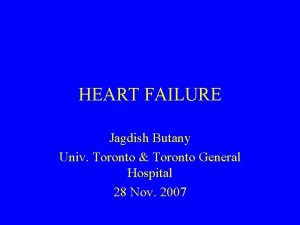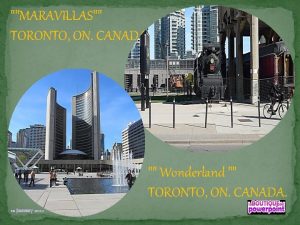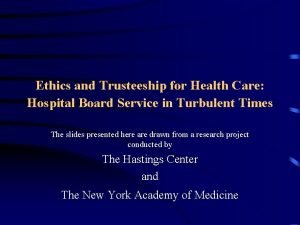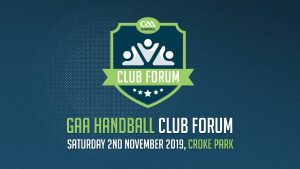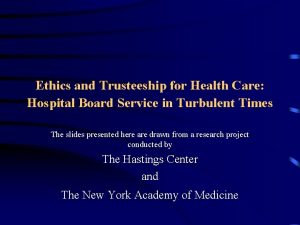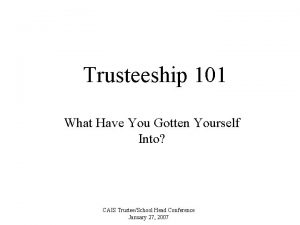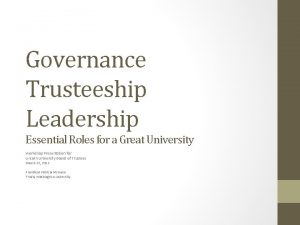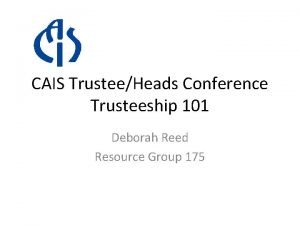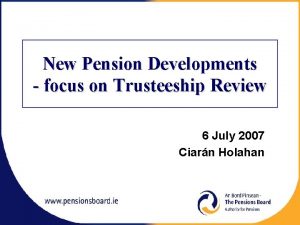Partnership and Trusteeship Workshop for Toronto North LIP

































- Slides: 33

Partnership and Trusteeship Workshop for Toronto North LIP “A Conversation with Funders” Day Thursday April 30, 2015 By: Zesta Kim and Tereza Coutinho, UWT Neighbourhoods Team

Agenda • Objectives of Workshop • Description of United Way Toronto • Partnership – what do we mean? • • • Types of partnerships Tools for good partnerships Q&A • Trusteeship - what is a trustee? • • • Trustee criteria Trustee agreements and checklists Q&A

Objectives • To provide a basic understanding of partnerships & trusteeships in the context of applying for project funding • To clarify terms • To share examples, tools and resources

Description of United Way Toronto • Community Impact Organization working to achieve measurable and sustained progress over time • 6 pillars: 1. Investment – investing donor dollars 2. Research – acting on solid base of evidence 3. Evaluation – setting goals and tracking progress 4. Strategy – being purposeful about long-term change 5. Advocacy – sustainable change 6. Partnership – working together

What is a partnership? A partnership is an arrangement where parties, known as partners, agree to cooperate to advance their mutual interests.

Partnership in the context of applying for project funding There are different kinds of partnership (both formal and informal), when applying for funding: Examples? • Sharing funds • Fee-for-service model • In-kind supports • Letter of support

In-Kind Supports • Space, staff, refreshments, volunteers, expertise, outreach, etc • contributions from other sources E. g. Settlement Workers in Schools (contract with lead agency to pay SWs; schools offer space; other partners present on key workshop topics, etc)

Fee-for-service/consultant model Sole contract with one agency but others contribute expertise to project (compensated from this funding source) e. g. OEYC – NYCH – programs in certain neighbourhoods

Letter of Support Agency submits application for funding but gets letter of support from partner indicating their support for the project given their past experience working with them

Definition of Collaboration: 2 or more different partners (e. g. individuals, organizations, networks) coming together from various sectors, groups and/or neighbourhoods to work toward common goals. Collaborations are about people and organizations building, nurturing and maintaining mutually beneficial relationships in order to achieve shared goals that will benefit all partners. Good partnership value collaboration

Anne Gloger’s Maytree 5 Good Ideas: Collaboration and Moving Forward Together http: //maytree. com/fgi/five-good-ideas-collaboration-moving-forward-together. html 1. Take responsibility for choices and respect choices of others (autonomy) 2. Walk a mile in each other’s shoes (empathy) 3. Demonstrate that the whole is greater than the sum of its parts (purpose) 4. Make working together easy (enabling environment) 5. Make collaboration a very human process (connectedness)

Collaboration – things to remember • No ‘one size fits all’ • Enabled versus mandated • Trust at the core • Achieving significant impacts takes risk, time, and resources Good partnership value collaboration

UWT Toolkit: Participating Effectively as a Collaborative Partner http: //www. unitedwaytoronto. com/document. doc? id=232 Tool 1: An Effective Collaboration • is there a clear link to my other work priorities? • opportunities/advantages to my participation? Trust? • what experience, skills, qualities do I bring? • organizational support? Authority?

UWT Toolkit: Participating Effectively as a Collaborative Partner Tool 2 (A): Assess for alignment with your organization: Step One – Gather Information • Who should be at the table? • Basic contact info • Goals, priorities, impetus • Info on partners • Benefits of our participation to us/to collaborative • Resources

UWT Toolkit: Participating Effectively as a Collaborative Partner Tool 2 (B): Assess for alignment with your organization: Step Two – Evaluate • likert scale (don’t know, disagree, strongly agree) Tool 2 (C): Assess for alignment with your organization: Step Three – Calculate the Results • high value and low risk • good gamble • low value and high risk • walk away and rethink

UWT Toolkit: Participating Effectively as a Collaborative Partner Tool 4: Quick and Easy Theory of Change* Worksheet • we believe that by. . . (strategies/activities) • our work will lead to. . . (goals/objectives) • so that. . . (vision, desired impact/outcomes) • our team. . . (who/how you work) • who will benefit. . . (target beneficiaries) • from our unique niche. . . (role/advantage) • using these resources. . . (financial/physical resources)


UWT Toolkit: Participating Effectively as a Collaborative Partner Other tools: Tool 3: Setting Direction Tool 5: Collaboration Agreement Template Tool 6, 7, 8: Evaluation of Process, Collaboration, Outcomes and Impacts Tool 9: Building Trust/Managing Differences Tool 10: Conflict Resolutions steps Tool 11 & 12: Leaving a Collaboration/Closure

Partnership Q&A?

Trusteeship

What is a trustee? • Trustee is a legal term which, in its broadest sense, can refer to any person who holds property, authority, or a position of trust or responsibility for the benefit of another • To us, a trustee is an incorporated not-for-profit with the financial systems and organization structure to administer a group’s grant funds – they will distribute the grant funding according to the approved project budget as well as be accountable for reporting on the grant funds to the group and the funder

Good Trustees (important considerations): • Additional administrative supports? e. g. project management, or employer of project staff • % admin fee • Past/Present work experience • If that is not possible, the trustee organization should be knowledgeable about the issues your project addresses or the community your group works with • Shared understanding, interest and experience

Some context: In 2006, United Way Toronto (UWT) implemented their Building Strong Neighbourhood Strategy (BSNS). BSNS aims to strengthen Toronto’s high need and underserved inner suburban neighbourhoods. Action for Neighbourhood Change (ANC) is one important component of BSNS.

Action for Neighbourhood Change Goals 1. Create opportunities for residents to come together; 2. Increase and build the leadership skills of residents; 3. Increase residents skills in working together and community organizing;

ANC Goals Continued: 4. 5. 6. Build a stronger community and influence change among decision-makers; Develop a shared vision for the neighbourhood; Identify key priorities and develop a plan (that is, a Resident Action Plan – RAP).

What are Resident Action Grants (RAGs)? Resident Action Grants are ‘seed funding’ from United Way to support local resident-led projects. They range in scale from $500 to $10, 000 depending upon the project and ANC location.

How do Resident Action Grants connect to BSNS? • Support ANC work to achieve key priorities identified by residents. • Build resident participation and commitment to playing a leadership role in improving their neighbourhood. • Get new people and partners involved. • Act as a demonstration of UWT’s commitment to neighbourhood engagement processes, focusing on change, by providing funding to projects identified and led by residents.

Trustee requirements for RAGs: • UWT-funded and/or Hub Anchor Partner • incorporated not-for-profit organization with audited financial statements • Board of Directors or executive represent the community it serves • have existed for at least one year • agree to take responsibility for the management of financial and project activities • agree to provide on-going support for the success of the project

Trustee Responsibilities - In the beginning: • Enter into a written contract (“partnership agreement”) with the grant recipients and the local ANC Ø Ensure it clearly states parties’ responsibilities with clear timelines, accountability and reporting requirements, and conflict of interest provisions • Provide an orientation to residents on agency policy and procedures, particularly financial expectations • Establish regular check-ins for timely communication and support resident and project success

Responsibilities throughout the project: • Obtain and file project documentation related to expenditures, disbursement of funds, project progression, and signed contracts • Ensure that all approved projects are completed based on their proposed implementation timeline • Monitor the use of funds by RAG recipients to ensure funds are used for the intended purposes, as per agreement • Provide on-going support and capacity building through regular meetings, offering training opportunities, and making connections

Trustee Reporting – at end of project: • Support residents • Submit a completion report no later than 30 days after the completion of each project according to the project implementation timeline • Submit a final financial report no later than 30 days following each project end date

Trusteeship Q&A?

Thank you And enjoy the rest of your day!!!
 Icef toronto
Icef toronto Security and prosperity partnership of north america
Security and prosperity partnership of north america Importance of trusteeship principle in modern business
Importance of trusteeship principle in modern business Industrial relations approaches
Industrial relations approaches Trusteeship council logo
Trusteeship council logo Ics north east
Ics north east Lesson 1 the industrial north
Lesson 1 the industrial north Lahshal classification
Lahshal classification Palate embryology
Palate embryology Cleft lip and palate mcq
Cleft lip and palate mcq Palate
Palate Hernia nursing care plan
Hernia nursing care plan True north vs magnetic north
True north vs magnetic north The north pole ____ a latitude of 90 degrees north
The north pole ____ a latitude of 90 degrees north Buffalo and toronto differ in four major ways
Buffalo and toronto differ in four major ways Xenopus cleavage
Xenopus cleavage Lip gloss slogans
Lip gloss slogans Post ictal meaning
Post ictal meaning Dew ache who gulls urge
Dew ache who gulls urge Dadabuan classification
Dadabuan classification Arbitrary hinge axis
Arbitrary hinge axis Posterior axillary fold muscles
Posterior axillary fold muscles Lateral throat form in prosthodontics
Lateral throat form in prosthodontics Development of secondary palate
Development of secondary palate Hershey's swoops
Hershey's swoops Peyton manning cleft lip
Peyton manning cleft lip Lip angle of drill
Lip angle of drill Notched vermilion border
Notched vermilion border Infraglenoid tubercle of the scapula
Infraglenoid tubercle of the scapula Credit
Credit Lip angle of single point cutting tool
Lip angle of single point cutting tool Cutting tool geometry
Cutting tool geometry Mr lip geography
Mr lip geography Saemmul lip crayon
Saemmul lip crayon


